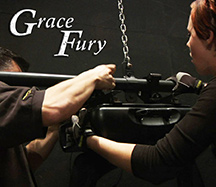In one final appeal to concerned filmmakers, enthusiasts, and critics here, I highlight related problems and points, regarding our culture of “review”.
My last few posts offer passion and detail from personal experience, but perhaps a checklist of reasonable expectations would be more useful.
If you have additional hopes for more ethical and constructive critique, please contact me, and I’ll post them here with credit. We can grow this list together over time!
A good critic doesn’t hit and run.

He’s not going to insist that a film or a trailer is “bad” and leave it at that — without offering specific support or reasoning. No punches thrown, no cheap shots taken – at least not without basis or backup. If doing so is unacceptable for a third-grade book report, it should be unacceptable for paid or professional film critique.
A good critic checks all facts thoroughly before she posts.

She doesn’t judge from her own assumptions, inattention, or incomplete research and viewing.
In fact, she describes a film as accurately as possible, with as little bias as possible, before comment. He doesn’t inject deception into the basics — just to make his general dissatisfaction with the project or disinterest in the subject seem more credible and compelling.
A good critic doesn’t put self above or ahead of a film to start.

She checks herself first and gives sufficient space-time to the film. She approaches every work with some degree of humility and restraint, so the work actually has the opportunity to speak.
If a reviewer can’t fundamentally do that,
then the power to see another is greatly diminished.
A good critic approaches new work and unknown artists
with due regard and genuine curiosity.

No ridicule — for show, for self-assurance, or for other ulterior purposes.
If he does so, what’s the point?
Is it worth the long-term cost to artist and audience, if every critic turns clown?
A good critic doesn’t treat spectators or consumers,
like some supreme, monolithic group in his own image…
and put “them” in charge.
It is said, all artists need an audience, but that doesn’t mean all should be ruled by one.
The critic also looks out for the creative person,
the whole realm of artistic purpose and freedom –
and the frequently ignored audiences that cherish that space.
I believe a good critic can lead us in the direction of empathy.
She doesn’t have to lose herself entirely or gush over every independent film. That’s not my argument here, but “in the shoes” of the artist, she is less inclined to objectify the filmmaker and more inclined to recognize his purposes, his challenges, his skills handling them, and both the inventive details and big picture produced from them.





Recent Comments